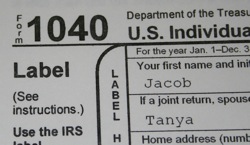[Nikki Usher has been looking into the options for news organizations under current nonprofit laws. With coauthor Michelle D. Layser, she’ll have a paper on the subject appearing in an upcoming number of the Utah Law Review. Here at the Lab, Nikki will be exploring their findings in a series of posts detailing the alternative models newspapers might consider. —Josh]
 Around the country, nonprofit journalism outlets are proliferating in both citizen journalism forms and more professional renditions, like ProPublica and MinnPost. But is there room within the legal code to make journalism itself a tax-exempt purpose, rather than making them shoehorn into being an “educational” institution or some other approved category for nonprofits? The answer is maybe — and the possibilities would leave new room for journalism to actually legally define itself as a field that constitutes both legacy media and more non-traditional forms of journalism.
Around the country, nonprofit journalism outlets are proliferating in both citizen journalism forms and more professional renditions, like ProPublica and MinnPost. But is there room within the legal code to make journalism itself a tax-exempt purpose, rather than making them shoehorn into being an “educational” institution or some other approved category for nonprofits? The answer is maybe — and the possibilities would leave new room for journalism to actually legally define itself as a field that constitutes both legacy media and more non-traditional forms of journalism.
By adding journalism into Section 501(c) — as a tax-exempt category exempt under nonprofit law, we could protect all nonprofit organizations organized and operated to advance journalism from federal taxes. Senator Ben Cardin’s bill to establish nonprofit newspapers was dead on arrival in the Senate and House. With the struggling Baltimore Sun in mind, his goal was to make newspapers 501(c)3s and have them operate under the section’s clause of “educational” institutions.
But why limit journalism to just the category of “educational” institutions? To be clear, the 501c(3) statute from the IRS code reads:
Corporations, and any community chest, fund, or foundation, organized and operated exclusively for religious, charitable, scientific, testing for public safety, literary, or educational purposes, or to foster national or international amateur sports competition…or for the prevention of cruelty to animals or children.
The clause that bothers so many journalists is this one:
…no substantial part of the activities of which is carrying on propaganda, or otherwise attempting, to influence legislation…and which does not participate in, or intervene in (including the publishing or distributing of statements), any political campaign on behalf of (or in opposition to) any candidate for public office.
This would mean that journalists would not be able to endorse political candidates — although there is considerable debate in the legal community about whether the effect of the Supreme Court’s decision in Citizens United might provide more room for nonprofit newsrooms to endorse.
So why include journalism as a separate clause under the nonprofit 501(c)3 category? First, it establishes a special place for journalism within our tax code. It doesn’t limit journalism to traditional newspapers, and it establishes journalism apart from just being about educational purposes. Not all of what journalism purports to do is strictly educational. What about the non-serious news, or sports columns, or comics and crosswords — or even the comments sections, opinion blogs, and social media efforts of newsrooms. These activities might be stretching the term of educational.
But if we gave journalism a special place we would be protecting all journalism in its myriad forms organized as nonprofits from federal taxes. Though many newspapers aren’t paying a lot of taxes these days because they are losing so much money, nonprofit status could help. Consider the implications for profitable news enterprises — for CNN, or dare say we Fox. These organizations could become nonprofits and take advantage of federal tax breaks to reinvest in journalism. Idealistic, but it could happen. Okay — maybe not.
Further, we would also be making it easier for journalists who are not big media to avoid federal taxes. The lives of small startups and innovative forms of journalism organizations would be free from going through any kind of onerous process of proving themselves as tax-exempt through other categories. This might provide a further boost to experimentation with new forms of journalism.
The tax code could also be amended to start fresh — to make journalism its own specific form of tax-exempt nonprofit: in this case 501(c)29. This would start the idea of a journalism nonprofit fresh, free from the restrictions of past 501(c)3 rulings about endorsements, awaiting new IRS rulings and case law.
However, the rules currently governing foundations mean that a 501(c)29 that endorses candidates would be unable to receive foundation money. An exception could, technically, be carved out of these foundation rules, but that would be pretty messy and likely rejected politically. So this doesn’t get us out of the endorsement problem that so frustrates journalists.
So what are the problems? Like anything with the IRS, we’d be giving the IRS the power to define what counts as journalism. That’s a pretty scary thought, particularly in a time of evolving journalism forms. But it might be better than the alternative: continuing to force journalism into a pre-existing model of an “educational” category that may not be right to accompany the myriad forms of journalism.
Bringing journalism into the tax code would require journalists to do something they aren’t good at: lobbying for their own position. But that, of course, strikes at the heart of our changing profession. But forcing ourselves to have the discipline to define what journalism is and might be is one way to protect journalism for the future.
Photo by Jacob Kearns used under a Creative Commons license. For the record, this post represents only Nikki Usher’s views, not those of her coauthor.